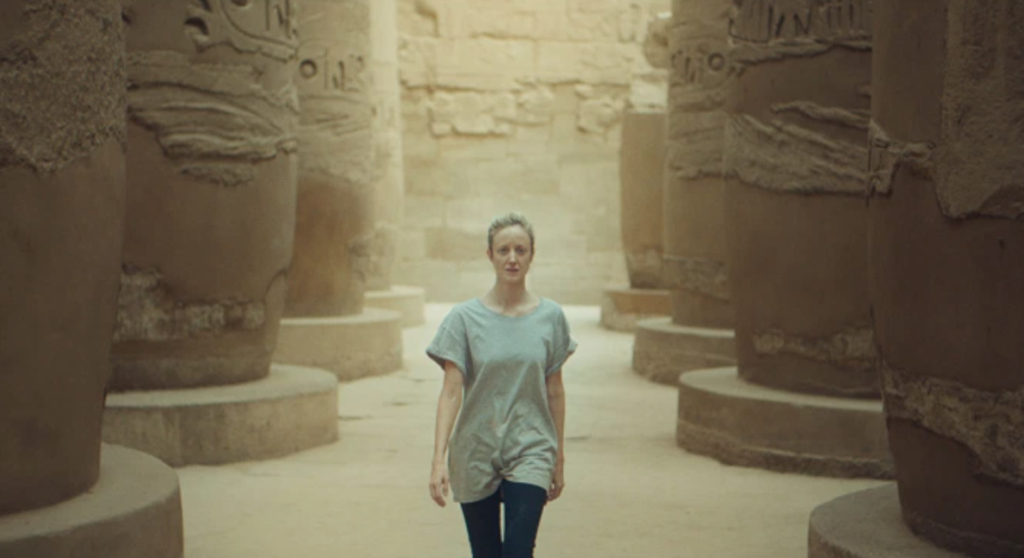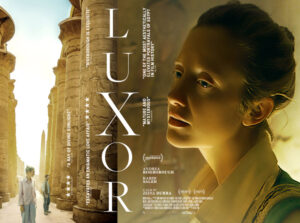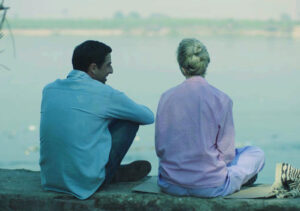Written and Directed by Zeina Durra | 85 min | Hoopla, On Demand
Back in 2009, an international co-pro with an Arabic-Canadian filmmaker opened in cinemas: Ruba Nadda’s Cairo Time. It’s about an American woman, Juliette, played by Patricia Clarkson, who gets to know a friend of her husband, played by Alexander Siddig, while visiting Egypt. The joy of the film comes from the deliberate, chaste romance that develops between them.
I couldn’t help but think of that film as Luxor unspooled. Here we have an expat, Hana (Andrea Riseborough), a British war-zone surgeon on leave in Egypt. She wanders Luxor like someone who knows the place, the temples and historic sites. Turns out she does: she runs into a former lover, someone she’s not had contact with in years, archeologist Sultan (Karim Saleh). In their 20s they had a passionate romance, and this place is still freighted with those memories. He’s visiting also, on a dig, staying in a far less fancy hotel than hers.
And so they wander around the community, rekindling their acquaintance. It’s a slow burn connection — you sense his interest in his hand on her shoulder, but she’s distant and internal. The film operates as a delicate travelogue as Hana takes day trips across the Nile and sees the sights.
Like Cairo Time, Luxor weaves a simple spell around a place, but doesn’t orientalize it. If anything, the new film frames Hana as insignificant and lonely against the silent pillars and towering architecture, letting the camera sit back and observe. This is a more complex film that the predecessor — it demands your attention but won’t provide obvious paths to understanding its themes.
Riseborough is a performer of astonishing power and fragility. She can turn on a star’s charisma, but more often she retreats into herself. Here, dressed in baggy linens and oversized shirts, she’s hiding in plain sight. She practically disappears into the texture of Luxor, the sandy, hieroglyph-covered walls and desert landscape. As Hana keeps Sultan at arms length, she does the same with us. Late in the day we get an explosion of movement and emotion.
Luxor seems to be about the schism between reality and dreams, the present and the past, and what we think we know and the mysteries of the universe we’ll never understand. As Hana says, “The more unstable the world is, the more the supernatural comes to the forefront.”
What Luxor does is locate hope in that mystery. In that, and in its at-a-distance assessment of figures adrift in a landscape, it actually shares more in common with the Kogonada film, Columbus, than Cairo Time.
This film may seem slight to some, but watch closely. The waters of this river have surprising depths.










